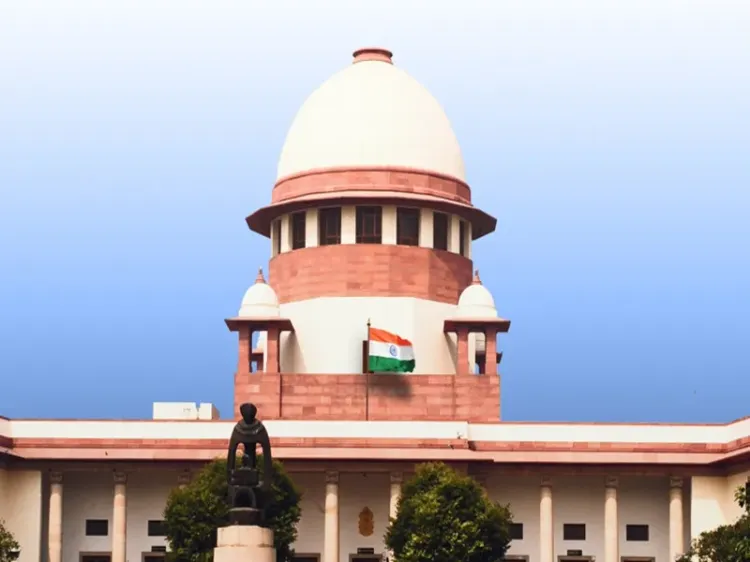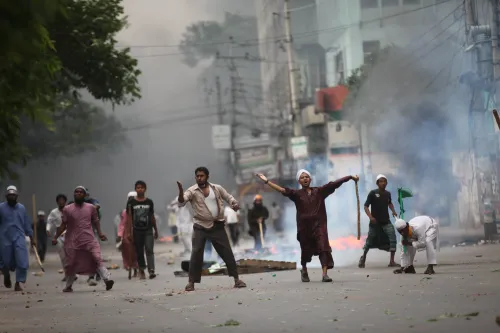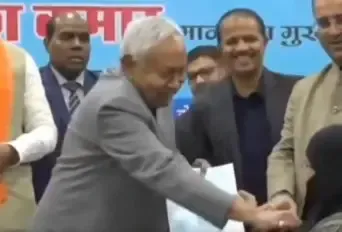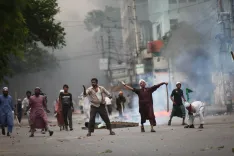Supreme Court to Review Rohingya Children's Admission to MCD Schools

Synopsis
Key Takeaways
- The Supreme Court is reviewing Rohingya children's school admissions.
- The Delhi High Court previously dismissed the case.
- Petitioners argue for educational rights for refugee children.
- Concerns about lack of Aadhaar cards impacting admissions.
- Legal arguments center around constitutional protections for children.
New Delhi, Jan 27 (NationPress) The Supreme Court indicated on Monday that it would need to evaluate the matter concerning the admission of Rohingya refugee children into state-funded schools.
A bench comprising Justices Surya Kant and NK Singh was reviewing a special leave petition challenging the Delhi High Court’s refusal to instruct the Municipal Corporation of Delhi (MCD) to enroll Rohingya children from Myanmar in local educational institutions. Advocate Ashok Agarwal, representing the petitioning NGO, emphasized that the aim of the petition was to provide education to vulnerable Rohingya refugee children.
“Where are these Rohingya families? Do you intend to remove them from the refugee camp?” questioned Justice Kant’s Bench. In reply, Agarwal clarified that these children were living with their families in regular residential areas and not in camps.
“If they are residing in a typical residential locality, then your (petitioner’s) argument deserves consideration. Even if they are in a camp, your argument would still merit attention, but from a different perspective. You should then seek educational resources within the refugee camp,” the Supreme Court commented.
In response, the petitioner’s lawyer stated that he would submit an affidavit that specifies the addresses of at least 17 children who are currently out of school and have been denied entry into MCD schools. The top court postponed the hearing, granting the petitioner a two-week period to present the affidavit.
Previously, on October 29, the Delhi High Court had instructed the petitioner, the NGO Social Jurist A Civil Rights Group, to approach government officials and file a representation with the Union Ministry of Home Affairs for resolution of the issue at hand.
The Delhi HC had noted that the public interest litigation (PIL) indirectly sought to extend the Right to Education (RTE) to non-citizens through judicial means, highlighting that no court in any nation determines who should receive citizenship.
“What cannot be done directly, you are attempting indirectly. First, reach out to the relevant authorities,” it had advised the petitioner’s attorney. The Delhi High Court ultimately dismissed the plea, indicating that the reliefs sought in the PIL pertained to significant policy issues and that the petitioner should contact the Union Ministry of Home Affairs or the Ministry of External Affairs.
Before the Supreme Court, the petitioner argued that he made representations to both the Union and Delhi governments requesting clarification that all refugee children living in India are eligible for education.
“This representation was followed by a reminder on 28.11.2024, yet no response has been received to date,” the petitioner added. The petition submitted before the Delhi High Court contended that the refusal of admission to these children due to their lack of Aadhaar Cards violated the fundamental right to education as enshrined in the Indian Constitution and the RTE Act of 2009.
The plea asserted that while these children are in India, they are entitled to constitutional protections, which include the Right to Education under Articles 14, 21, and 21-A of the Indian Constitution, along with the Right of Children to Free and Compulsory Education Act, 2009. It further emphasized that it is the duty of the Directorate of Education and the MCD to ensure that all children under 14 are admitted to government or MCD schools.









